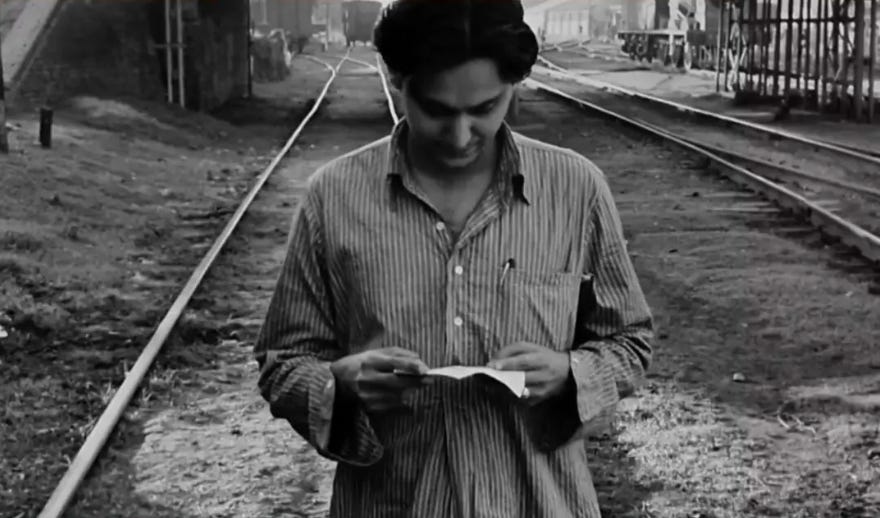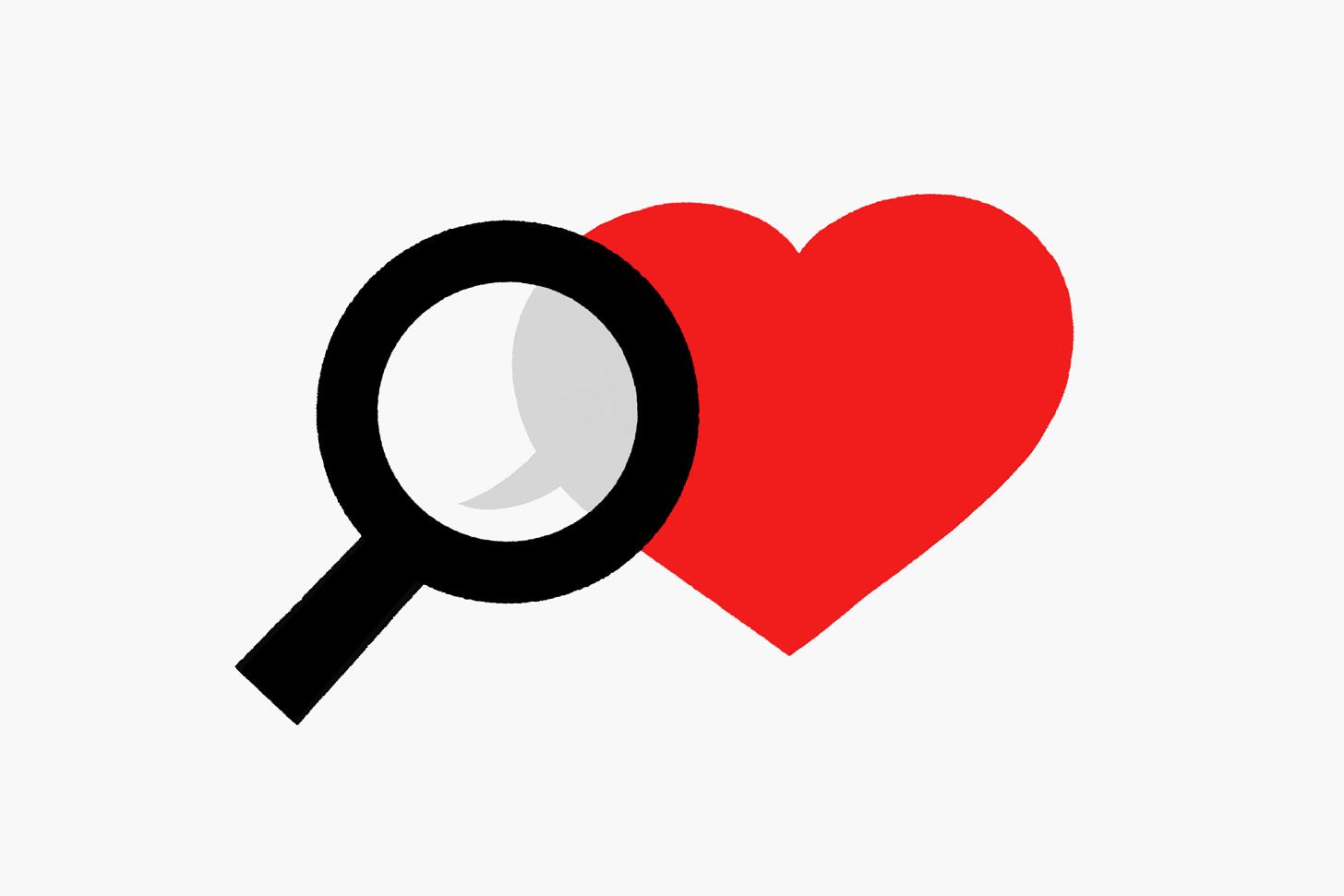Talk to me, man
Why are so few personal essays written by guys?
In this issue:
Headliner Have you got male? An appeal for a wider range of personal essays
Revival Going solo in Porto 🛫
Aftershow The anatomy of a knockout, swipe left for lousy grammar, Lola Olufemi’s strategies for resistance, a soul-crushing Apple ad, letter to a younger writer
A few months ago, I considered the value of the personal essay in the age of oversharing and endless content. “Can you connect the personal to something more universal in a way that tells a larger story about these times?” I asked. And can you do it without drifting into solipsism? A common pitfall.
What I wanted to move on to – but felt unqualified to discuss – was how few men appear to practise this form, particularly the straight ones who talk about dating and relationships. (Am I wrong? Send recommendations, please.)
Is it because many of us are still incapable of articulating, in detail, our emotions about love and self-worth? Or we are unwilling to open ourselves up to judgment in revealing our flaws and fears? Maybe. Ladies often talk about “the work” that many guys would rather not do on themselves.
Some guys may anticipate a harsh reception in a world that is railing against years of patriarchy, a system that “rewards men for being out of touch with their feelings,’ as bell hooks wrote in The Will To Change. A seminal text from 2004 that still cuts through on such matters.
Look beyond the life coaches, influencers and experts who are prominent in conversations of this nature. Imagine someone who is a little less sure of themselves, who is beginning to confront uncomfortable truths and who aspires to write with greater sensitivity or self-awareness. How easy would it be for them to tackle the subject of sex or dating and evade criticism for either bragging or whinging?
In 2022, Rachel Connolly wrote a controversial critique of Isabel Kaplan’s Guardian essay “My boyfriend, a writer, broke up with me, because I’m a writer”. Connolly questioned how Kaplan foregrounded female abjection. For her, it was too straightforward a parable of victim and villain, which diminished the agency other women might have in a similar position.
Overall, a well-reasoned analysis of this style of writing and the potential hazards. Read it and see what you think. The bit that intrigued me was where she took issue with Kaplan’s focus on vulnerability, which undermined rather than revealed her complexity of character in Connolly’s opinion. To illustrate her point, Connolly conducts this thought experiment.
“Male vulnerability is still wildly underdiscussed. Men could write essays like Kaplan’s, about feeling brokenhearted at losing a relationship with a woman who wanted children at a different time, or emasculated by earning less than they wished, or even disappointed by their girlfriend’s unenthusiastic response to their success. But they don’t, because everyone would laugh and make fun of them. In a patriarchal society, male vulnerability has no value, just as female vulnerability is too prized.”
Masculinity is a complex topic that I will return to at a later date. There is still a lack of nuance in this discussion, a tendency to generalise and hyperbolise while ignoring the good work being done by the organisations such as CALM and Movember in the UK.
I’m sure some guys are chatting about things like this one to one, on Whatsapp and anonymously on Reddit, which is a start. First steps. But there is still cause for concern, especially among young people. A survey last year revealed that 44 per cent of working-class men felt society told them real men don’t talk about their problems.
What we need is a greater breadth of role models, not just celebrities. And a wider range of teachers (not just straight men) who can challenge restrictive expectations. Who can find common ground through shared values rather than simply reinforcing gender stereotypes that men must conform to.
Perhaps our first mistake is to try and define a term as monolithic as “masculinity” when agreeing on what it means to be a decent human in 2024 feels far more useful.
One of the best things I have ever read on masculinity isn’t an essay. It’s a thread by author Musa Okwonga, written in the heat of the Tate hysteria and a perceived crisis in masculinity. A few nuggets –
I guess my dispatch is part appeal, part thesis. I am connecting the lack of these personal essays with the topic of masculinity because the more men who feel uncomfortable or unable to share their honest feelings on who they are and where they perceive their place to be in society, the smaller the potential pool of writers who might help others to feel seen, heard and understood.
There was a callout for personal essays at the end of last year on the theme of quitting. It’s not a form of writing I am comfortable with … yet. But I pitched the idea and wrote the thing while waiting to hear back.
The editor declined. Perhaps the stakes weren’t high enough. So I am going to share it with you in a couple of weeks. A reflection on how a rigid career path and parents’ expectations confine one’s sense of self. Who knows, after a bit more fieldwork I might turn to romance 😆
In the meantime, if you have favourite personal essays by (gentle)men please drop them in the comments.
Assignment: Porto
As we enter the summer here in the UK, and thoughts turn to far-flung adventures in the sun, it felt like a good time to revisit my trip to Porto. Join me as I muse on solo travel after lockdown, fall for Caroline Polachek at Primavera Sound music festival, ogle muitos azulejos and munch my way across the city.
When does an adventure begin? How do you know you’re on one? And can you cultivate that feeling? Bring it into being? Manifest it as the Insta-life coaches and their disciples love to say.
I can think of one way. In the words of that great Gonzoist Hunter S Thompson, who was never far from a wild jaunt or mad caper into the unknown, “Buy the ticket, take the ride.”
So that’s what I did. Despite my listlessness at the thought of another solo trip (I have bought many a single ticket, dear reader, to Tallinn and far beyond), sometimes the gravitational pull of anticipation – no, let’s call it what it is, hope – lures you back on the road.
It’s been a while since I last crossed a border – 2019, in fact. I am in Porto to attend NOS Primavera Sound, now on its ninth edition and attracting more than 70,000 visitors from over 50 countries. But this place has been on my list for a while. A tranquil port city steeped in history, labyrinthine mystery, cobbled character and riverside charm.
There’s a gentle sway to proceedings here. Perhaps it emanates from the calming waters of the arterial Douro, which runs through the city. People go about their business in an unfussy and unforced manner, whether it’s the bakeries dispensing their fabled pasteis de nata, waiting staff sauntering around tables or locals meandering with nowhere in particular to be. It’s a world away from the cut and thrust of London.
'You feel like a god' – the anatomy of a knockout

This is a superb feature about the knockout in boxing by broadcaster-turned-author Andy Clarke. The mixture of emotions that rushes through the victor: exhilaration, relief, possible dread. But also, where it sends the opponent at and beyond the moment of impact.
As an undefeated rising star with 18 wins to his name, Amir Khan was flattened twice and counted out in just 54 seconds against Breidis Prescott. On each visit to the canvas he felt enveloped in thick, swirling fog, while trying to get his bearings.
"It's the worst place to be," he says.
"It's like a jigsaw that has just gone smash, into pieces, and you’re trying to put it back together as quick as possible. That's what it is like.
"You're hearing so many different voices from different people, you're hearing different voices from outside, voices that you recognise, and the referee counting as well and you're thinking: 'Who am I listening to? What should I do?'
As for the crowd, we clamour for the violence. We drink in the madness – take it away with us as Alypius of Thagaste did from the Roman arena (to borrow Clarke's reference).
The drama he speaks of in this brutal combat reminds me of Joyce Carol Oates' On Boxing and her observation that boxers “are there to establish an absolute experience, a public accounting of the outermost limits”.
Thanks to Lynne Truss for bringing Oates into my life as I read Get Her Off The Pitch, her amusing memoir about relocating to the sports desk of the Sunday Times. Truss remembers covering the Holyfield v Lewis heavyweight world title fight in Madison Square Garden just before the millennium.
As the newcomer/outsider, she was able to come at boxing from a different angle, bearing witness to absurdity and majesty in the spectacle.
“… you go into an old, battered, smelly Skid Row gym like that, and suddenly this upcoming fight is nothing to do with the HBO pay-per-view millions, or the international diplomacy success of the promoter, or the trading of hollow physical threats by besuited fighters on podiums with fireworks in the background. Because this is where it all happens. This is where men build defences, and learn by getting hurt. This is where they sweat and learn and concentrate, and – in Holyfield’s case – acquire neck muscles like anchor chains.
There are also witty observations on darts, tennis and football, of course. You will laugh a lot, even if sport’s not your thing.
"Unlike Gascoigne, who has a brain like a foot, Zidane has a foot like a brain and a brain like a brain. In fact, he's the brainiest footballer I've ever seen."
Experiments in Imagining Otherwise
Lola’s freeform handbook of provocations has been out for a few years now yet these pages still bristle with urgency and possibility. They came into my life just as I sought to shift focus. To ask better questions instead of looking for pithy answers to deep-set problems in society.
Just when pernicious forces of capitalism, colonialism and bigotry were beginning to eclipse hope, these strategies for resistance urge us “to remain steadfast in the belief that this cannot be all there is”.
To place imagination at the heart of our co-dependency and collective action feels radical and necessary. It’s a core tenet of her black feminist perspective. Yes, the f-word but not as you might know it. “I feel embarrassed when I say feminism and people do not think revolution in service of every living thing,” she writes.
Expect frequent revelations in Lola’s reframing thoughts, delivered with conviction. How about this on recording the past –
“The archive, with its shadows and gaps, is a colonial invention in narrative consistency. Its greatest trick is to convince us that ‘time’ signals forward movement, a determined motion from which events may be regulated, predicted and anticipated. It’s ideological reach is second only to the map.”
Or this on having children –
“The stranglehold of biology and obligation has made a mess of our desires for too long. It has scuppered our plans, given us children we did not want in a world that could not help us. The imperative isn’t to have a child or even to desire one; the imperative, no matter who you are, is to vow to protect them from all kinds of violence and terror and pain. That is the meaning of collective being.”
“In all my work, I think I’m trying to touch some place that is not here,” Lola has said. Through evocative language and fierce intellect, she takes us there.
Letter to a younger writer
This is an invaluable letter’s worth of advice from
to young writer Max. It’s also useful if you have been at this game for a while.Who hasn’t felt out at sea, scrambling for a story, a commission or just a sense of purpose? Or spending an alarming amount of time questioning their ability and value in a creaking industry.
To try and write for a living is to teeter on a see-saw between elation and existential dread, even for those who appear to be doing well.
That’s why there will always be a place for words that offer encouragement and give direction.
Perhaps the most important ones are those that bring us back to the why – where it all started.
PS “Writing is the art of noticing.” 📝
Crush
This iPad Pro ad just left me cold. Are we supposed to feel excited by the prospect of all these trusted tools and expressions of human creativity being squashed into a tablet that's just a little thinner and more powerful than the previous one?
Playing on the word "crush" is a dangerous game, didn’t you know?
Ok, how about "pouring" all that into one object?
Not dramatic enough.
Ok, what about "blending"?
🥱
"Pressing"?
Meh. Give me more.
Fine, let's go for maximum violence on screen but we'll juxtapose it with the sweetness of Sonny and Cher. You know, like John Woo did when he used Olivia Newton-John's rendition of 'Somewhere Over The Rainbow' for that bonkers shootout in Face/Off.
Apple is more about iterations than innovations these days. They got lots of attention but it wasn’t the cheeky PR masterstroke they hoped it would be. The ad was pulled from TV last week but it’s still available on YouTube.
Will millions of people buy the new iPad Pro? Of course they will, because the upgrade mentality is ingrained. Optimise your life. Reach new peak productivity. Everything at the touch of a button etc
It feels like the wrong message at a time when so many are struggling to make a living from their art and AI feels more like friend than foe.
It’s possible to sell a technological innovation without dumping on humanity. See the movie montage Hello to tease the iPhone in 2007, Malkovich bantering with Siri or this ad for Personal Voice from last year, directed by Taika Waititi.
How language influences your choices in online dating
Let’s close where we began, dating and relationships, with a side order of linguistics. Did you know Hinge launched a feature called Hidden Words that allows users to mute people who use certain words they can’t stand? Good news for Brooklyn-based Malia Griggs who will bail if you use “their” instead of “they’re”.
“To me, it feels like you’re not taking the time to even read your own profile a couple of times, and we don’t have the same values. My values are grammar.”
Wow. The editor in me can empathise, but is this a red-line item? I mean, do you want to meet someone or mark them?
What words or phrases give you the ick in messages? Which typos are your biggest turn-offs?














Chuffed to read this, thank u ☺️
Dan, above, also recommended Sedaris. 📝
I will check out James’ work.
Of course, you also have guys like Matt Haig writing about depression and mental health in a commendable way in his books.
Several astute writers on here discuss issues around masculinity. Many of them are from the black community who I feel are more advanced in confronting this topic. I was reading https://substack.com/@alexlewis the other day. This essay is v good: https://www.feelslikehome.site/p/as-a-man-why-are-you-free
Raisingmyles.substack.com is setting the standard for tender and wise reflections on fatherhood. @MarcTypo has really found his voice and format. He also keeps a formidable list of other black writers called The Cookout Library.
But when it comes to thoughts on dating, manhood and finding companionship, we are underserved – by ourselves. So much so that, in the UK, Caitlin Moran felt compelled to step up with What About Men? And not to her credit judging by some of the feedback I have read.
First off, great cover photo. Adaptation is one of my favourites!
Second, my guess is that truly honest essays by guys, especially straight guys, would be met with great hostility by a reader audience that, at least currently, tends to be more female than male. You mentioned Matt Haig in one of your response comments, and not being too familiar with him, I googled "Matt Haig masculinity" and one of the first hits was about how he got "crucified" in 2015 for wanting to write a book about masculinity: https://www.theguardian.com/books/2015/jun/15/matt-haig-crucified-on-twitter-for-planning-book-about-masculinity
And I'm not talking about essays penned by extreme manosphere type guys who are obviously reproachable. What about pieces from everyday type of guys on their honest thoughts about a contentious and complicated topic like dating, where it isn't often easy to tell who's right or wrong, and it's all about building narratives and whose point of view you hear from? A man might not be wrong, but that also doesn't mean women want to hear from him, unless he either softens what he says or just panders. Of course, then that just makes for boring or dishonest writing.
I like what Alex Perez said about masculine writing, that it doesn't have to automatically be anti-feminist or anti-women, but it also can't be concerned with being judged by women (especially the type of metropolitan progressive women in publishing circles).